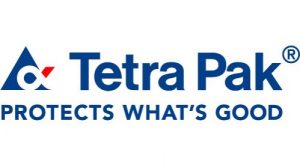Tetra Pak targets more stakeholder collaboration on recycling awareness
November 19, 2021654 views0 comments
Tetra Pak, a world-leading food processing and packaging solutions company, says it is launching a fully renewable aseptic package by 2023 and that it would achieve a 70 percent recycling rate in Europe by 2025 while also setting an ambitious commitment to reach a 46 percent GHG reduction across its value chain by 2030, in line with the 1.5C pathway.
 The company, which recently launched its annual sustainability report where it outlined the progress made on various aspects of sustainability throughout its business operations in 2020, shedding light on its future commitments and ambitions, said it has plans in the pipeline to collaborate with different stakeholders to increase awareness on beverage cartons collection and recycling.
The company, which recently launched its annual sustainability report where it outlined the progress made on various aspects of sustainability throughout its business operations in 2020, shedding light on its future commitments and ambitions, said it has plans in the pipeline to collaborate with different stakeholders to increase awareness on beverage cartons collection and recycling.
At the virtual launch of the report, Oshiokamele Aruna, managing director, Tetra Pak West Africa, said, “Tetrapak has constantly stepped up to the challenge of harnessing the inherent potential and the greater value proposition that investment in sustainability offers.”
Aruna added that, “Food access and food insecurity have significant environmental impacts especially in West Africa, and finding a common ground between food production and environmental conservation is crucial to survival,” assuring that, “We will continue to employ more sustainable and innovative models as well as continued innovation to advance the food packaging and processing space.”
Read Also:
He also revealed that Tetra Pak West Africa, in a bid to leverage partnerships and expand its sustainability initiatives, signed a recycling agreement with Onward Paper Mill to develop sustainable recycling solutions for post-consumer beverage cartons in Nigeria, adding that the company was working on developing its Lagos office, with furniture made out of 100 percent recycled materials sourced locally, in collaboration with the Food and Beverage Recycling Alliance (FBRA).
The managing director also spoke about the impact of the pandemic on its operations in Nigeria as it ensured there was no shortage of food supply across the country.
“Response from our Nigerian market is improving, recovery is slow but we are experiencing recovery despite the pandemic slowing down operations. Covid-19 gave a different challenge but we have to find ways to sustain operations during the lockdown. We ensured there was no shortage of food supply as we ensured that our clients continued operations,” he said.
Meanwhile, the sustainability report accentuates the company’s various investment and innovation efforts while it enjoined forces across the board to address the need for greater consumption of food while reducing the impact on natural resources.
Adolfo Orive, president and chief executive officer, Tetra Pak, while commenting on the report said: “Our sustainability report reiterates the need for a comprehensive, holistic approach to sustainability where we are protecting the food that is produced globally, the people that we work with, and the planet we live on. Towards that end, we have maintained a particular focus on reducing our carbon footprint, increasing recycling, protecting biodiversity and enhancing access to safe, nutritious food for people worldwide.
“The last year has seen significant progress across all these areas, as well as towards our future ambitions to achieve net-zero emissions across the value chain by 2050 and to deliver the world’s most sustainable food package – one that is made solely from responsibly sourced renewable or recycled materials is fully recyclable and carbon neutral.”
“We are living in a decade of action and are fully committed to playing our part, both in enhancing food access and reducing environmental impact. The magnitude of the challenge, however, is such that every stakeholder and every step will count if we are to meet our sustainability ambitions. But as long as we keep innovating and collaborating, we can strive for a sustainable future that protects what’s good,” he concluded.
